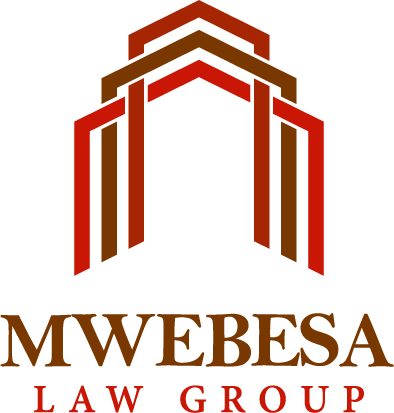Imagine standing before the Tanzania Revenue Authority (TRA), where every missing document or delayed submission can inflate your tax liability and weaken your defense. The rules are clear: the onus of proof rests squarely on your shoulders. Fail to provide the right evidence at the audit stage, and you risk facing assessments based on estimates that could cost you more than you bargained for. In this unforgiving arena, submitting timely, comprehensive evidence isn’t just a legal requirement; it’s your strongest shield in the battle against excessive tax obligations. As the saying goes, “A stitch in time saves nine”, and in the case of audits, that stitch could save your business.
WHAT THE LAW SAYS ABOUT TAX AUDITS
In Tanzania, the power to conduct tax audits or investigations is vested in the Commissioner General of the Tanzania Revenue Authority (TRA) under Section 1 of the Tax Administration Act CAP 438 R.E. 2019. However, pursuant to the conditions set in Section 47 of the TAA, the TRA can only audit returns filed or tax due within the last five years, except in cases of fraud or serious omission.
During the audit, taxpayers are legally obligated to comply and provide reasonable assistance, failure to do so is a punishable offense under Section 85 of the TAA. Such assistance is provided through according them with all necessary documentation as they may request or as you see fit. Auditors are not looking for an overload of paperwork, they want precision. Focus on providing documentation that directly supports your position.
Documentation may include inter alia: Bank statements reflecting income and expenditure; Accounting books and ledgers; Invoices & receipts for sales and purchases; Electronic Fiscal Device (EFD) receipts; Payroll and commission records; Import and export documentation; email and all sorts of correspondences with suppliers, TRA etc., that can substantiate your tax position; and Contracts establishing business transactions.
LEGAL OBLIGATIONS AND THE CONSEQUENCES OF NON-COMPLIANCE
Notably, failure to provide all relevant & adequate evidence during tax audit, TRA may issue adverse assessment based on estimated figures. This is allowed under Section 50 of the Tax Administration Act [CAP 438 R. E. 2019], which confers discretionary powers to the Commissioner General to make such assessments. This estimation often results in a higher tax liability than what might have been assessed had sufficient documentation been provided.
WHY TIMELY SUBMISSION OF EVIDENCE MATTERS
The most critical stage for submitting evidence is during the audit itself. Section 52(9) of the TAA, as amended by the Finance Act 2020, significantly limits the reliance of new evidence at the appeals stage. Any failure to submit complete evidence at the audit phase can severely hinder a taxpayer’s ability to challenge an assessment later, weakening their appeal and potentially leading to unfavorable rulings.
EXCEPTIONS FOR ADDUCING ADDITIONAL EVIDENCE AT APPEAL
While the general rule limits additional evidence at the appellate stage, there are exceptions. Through making an application for leave to adduce the same, Section 17(2) of the Tax Revenue Appeals Act gives the Board and Tribunal discretion to accept new evidence, and Rule 36(1)(b) of the Court of Appeal Rules allows the Court of Appeal to do the same. However, this is only permitted when it can be demonstrated that the taxpayer could not reasonably have obtained the evidence during the audit or trial, and that the new evidence could significantly alter the case outcome.
Notable cases such as Kariakoo Auction Mart vs. Mashaka Dyanga & Others (Civil Appeal 234 of 2019) and African Barrick Gold Plc vs. Commissioner General TRA (Civil Application 350 of 2019) illustrate this principle in action, where additional evidence played a critical role in appellate proceedings.
PRACTICAL RECOMMENDATIONS FOR TAXPAYERS
Remember, in the eyes of the auditor, well-submitted evidence is not just data, it is the difference between a smooth audit and a problematic one. Once the TRA issues its assessment, your window for introducing new evidence slams shut, leaving you vulnerable to inflated liabilities based on incomplete information. The stakes are high, and the risks are real. However, with proactive preparation and a solid audit strategy, you can significantly mitigate these risks. In the end, the effort you put in today could be the difference between a favorable outcome and a costly financial setback.
KEY TIPS
- Act defensively in your daily transactions by meticulously maintaining documentation for each transaction in anticipation of an audit.
- Treat every request for documentation as a priority. Submit as much as possible within the initial deadlines to demonstrate diligence and willingness to comply.
- Use a checklist to ensure that all required evidence is included and logically arranged, making it easier for auditors to cross-reference and validate the information.
- Before submitting any evidence, ask yourself: “Does this document directly support my position?” If the answer is no, reconsider its inclusion.
- If any inconsistencies arise, address them openly in your submission. Transparency can often mitigate potential penalties.
- Engage a tax professional early in the audit process to guide you through documentation and ensure compliance with applicable laws.

